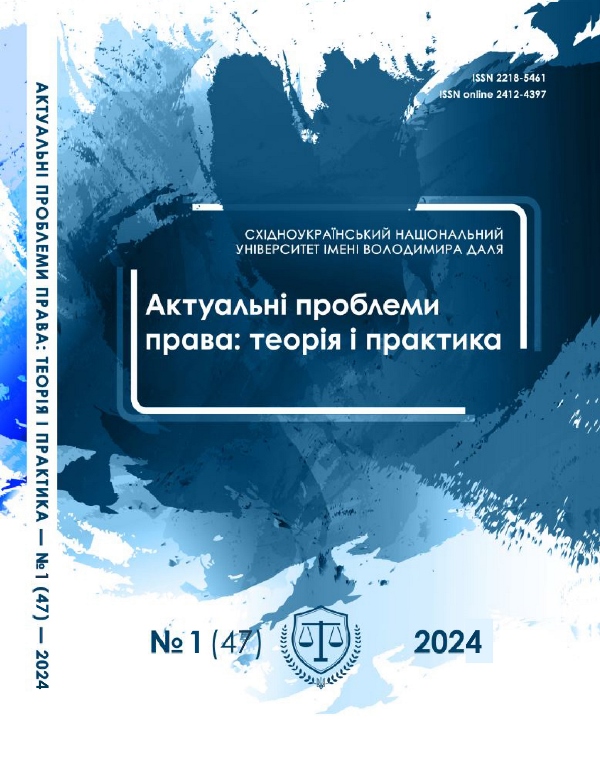INTERNATIONAL LEGAL REGULATION OF NON-STANDARD WORKING TIME REGIMES
DOI:
https://doi.org/10.33216/2218-5461/2024-47-1-211-217Abstract
In this article, the author analyzes the legal
regulation of non-standard working hours at the
international level. Attention is drawn to the fact that
in Ukraine the priority of norms of international law
prevails over national law. Accordingly, if a certain
contract or act is recognized or ratified in accordance
with the procedure established by law, it becomes part
of our legislation and can be used to regulate the
relevant legal relations. At the same time, if there is a
conflict between the norms of the international act and
the national one, the norms of the international act
will prevail. In the absence of the necessary norms in
the national legislation, it is worth referring to
international acts, in particular, conventions and
recommendations of the ILO and EU Directives. Thus,
the article analyzes the acts of the International Labor
Organization that regulate home work, remote work,
part-time work, and night working hours. In addition,
the author also elaborated EU acts on these issues.
Particular attention is drawn to Directive No.
90/270/EC on minimum safety and health
requirements when working with screen devices.
There are no such norms in the current legislation, but
the author emphasizes the need to comply with labor
protection requirements, because under non-standard
regimes these requirements may be neglected. At the
same time, excessive time spent by the employee in
front of the screen can negatively affect his health.
The author draws attention to the fact that the
issue of adapting the current legislation to EU
requirements has also become even more relevant in
connection with the European integration processes of
our country. Attention is also focused on the provision
of Art. 420 of the Association Agreement with the EU,
according to which Ukraine undertakes to contribute
to the creation of such conditions on the labor market
that would combine flexibility and security.
Based on the results of the analysis, it was found
that the norms provided for in the ILO acts and the EU
legislation regarding some issues of non-standard working time regimes regulate the mentioned legal relations better than in the Ukrainian legislation.
Based on this, the legislator should carry out work on bringing the current legislation of Ukraine into line with the provisions of international acts.
Keywords: non-standard mode of working hours, remote work, home work, flexible form of employment, adaptation, systematization.

